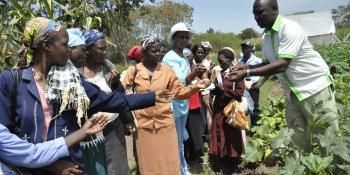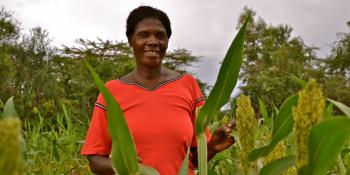Social learning: A possible pathway to transformative change?
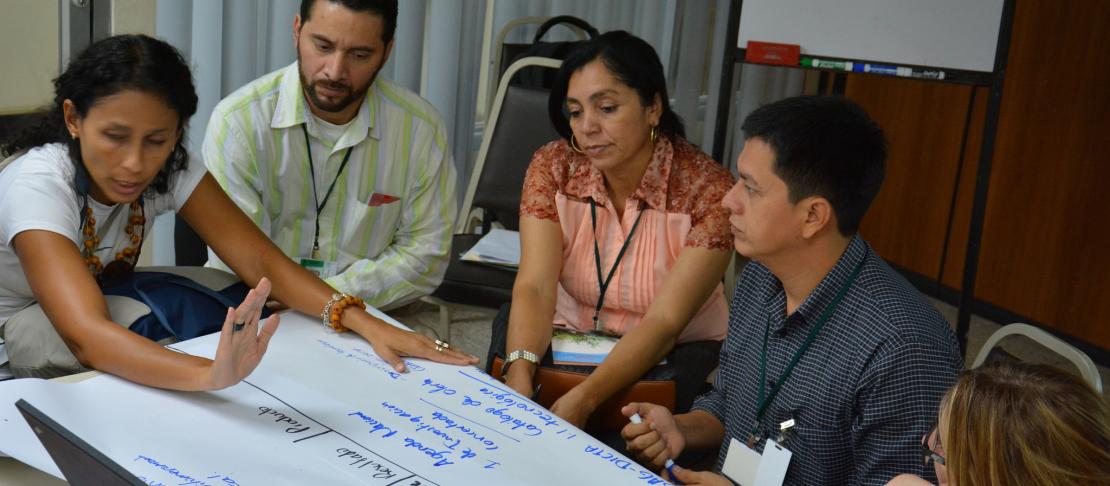
Communication is key for changes to happen, but what might might be less known is how best to do it. Scientists can sometimes be viewed as being removed from “reality” where they make little effort to communicate science and understand local realities of farmers.
They are also seen as designing research that is not demand driven because they do not listen or communicate with various actors around them. It could also be said, however, that non-scientists are also not engaging or communicating with the science community because they do not have access to scientists or because they speak a very different language from scientists, turning communications into a challenge.
However, if we are to make transformative changes in the lives of farmers to improve their adaptive capacity or help mitigate greenhouse gases (GHG), we need to find innovative approaches to bridging communication gaps.
How to bridge communications gaps
One way in which to overcome communications gaps is through social learning. But what is social learning and how can it be useful to achieve transformative change?
These are questions that workshop participants, who attended a recent workshop led by the CGIAR Research Program on Climate Change, Agriculture and Food Security (CCAFS) in Addis Ababa, Ethiopia, debated and discussed as inputs to a CCAFS strategy in this area. Drawing on a discussion paper drafted by International Institute of Environmental Development (IIED) and Institute of Development Studies (IDS), the group 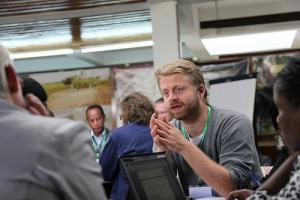 identified various investments and opportunities where results could be expected.
identified various investments and opportunities where results could be expected.
Considering the wide range of participants from scientists to communication specialists, as well as development practitioners, conversations about social learning were rich.
Mapping out social learning in a research context
Social learning can be defined as a learning and knowledge sharing process that is based on dialogue and reflection among the parties involved in the process about complex and uncertain issues.
It has the potential to bring about transformative changes because communications is not linear (i.e. scientists telling farmers what to do) but looped (i.e. iteration between scientists and farmers) so that the knowledge being shared is considered relevant by stakeholders with higher probability of using shared knowledge for change.
Based on the definition, one could easily argue that social learning sounds quite similar to conducting participatory research or boundary work (two approaches for engagement and dialogue that pre-date social learning), where stakeholders such as scientists and farmers do come to the same discussion table.
F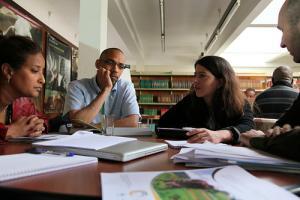 or instance, CCAFS regional scenarios work is based on participatory, boundary work principles but is not referred to as “social learning”.
or instance, CCAFS regional scenarios work is based on participatory, boundary work principles but is not referred to as “social learning”.
One could also argue that social learning is just about learning with limited mechanisms to connect to collective action, which is necessary especially when tackling climate change adaptation that impacts groups and not individuals.
Unless, there is a conscious effort being made to connect learning and action, social learning can perhaps make little contribution to transformative change. There is also limited scope for social learning to be scaled when the practice of social learning usually remains highly contextualized.
Although what constitutes social learning remains debatable, the workshop provided a space to discuss social learning and how CCAFS could better integrate social learning in its research projects and partnership engagement strategies so connecting research and action.
More on the CGIAR Research Program on Climate Change, Agriculture and Food Security (CCAFS) work on capacity enhancement.
View all pictures from the workshop on CCAFS Flickr page.
Read other, related blog stories from the workshop:
Social learning in climate change - Of buckets, loops and social LSD? By Ewen Le Borgne, International Livestock Research Institute (ILRI)
Social learning and climate change: CGIAR and partners in the (local) decision-making whirlwind By Ewen Le Borgne, International Livestock Research Institute (ILRI)
This story was written by Dr. Moushumi Chaudhury, a CCAFS science officer working on Linking Knowledge to Action, based at the World Agroforestry Centre in Nairobi, Kenya

